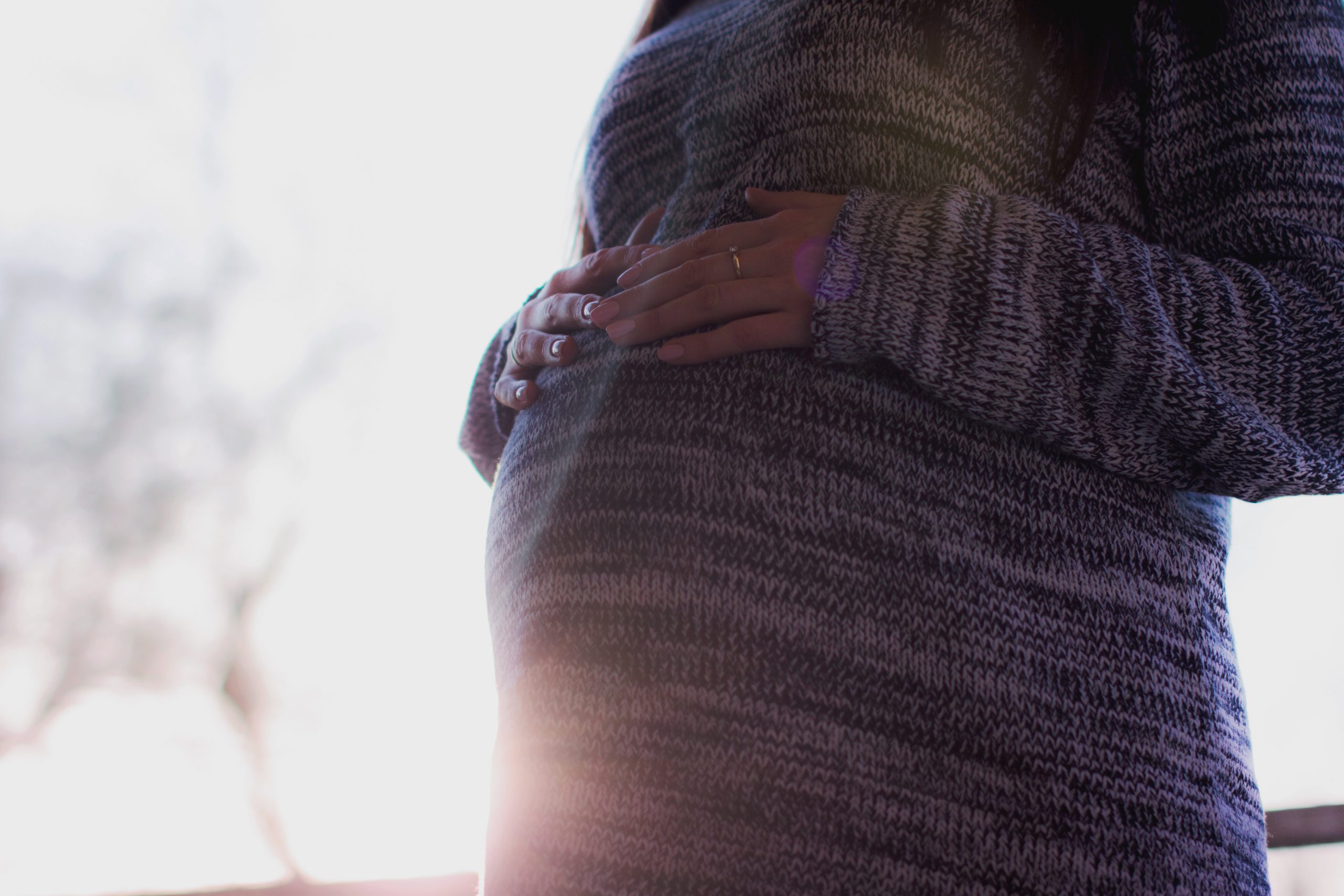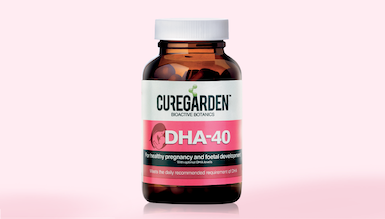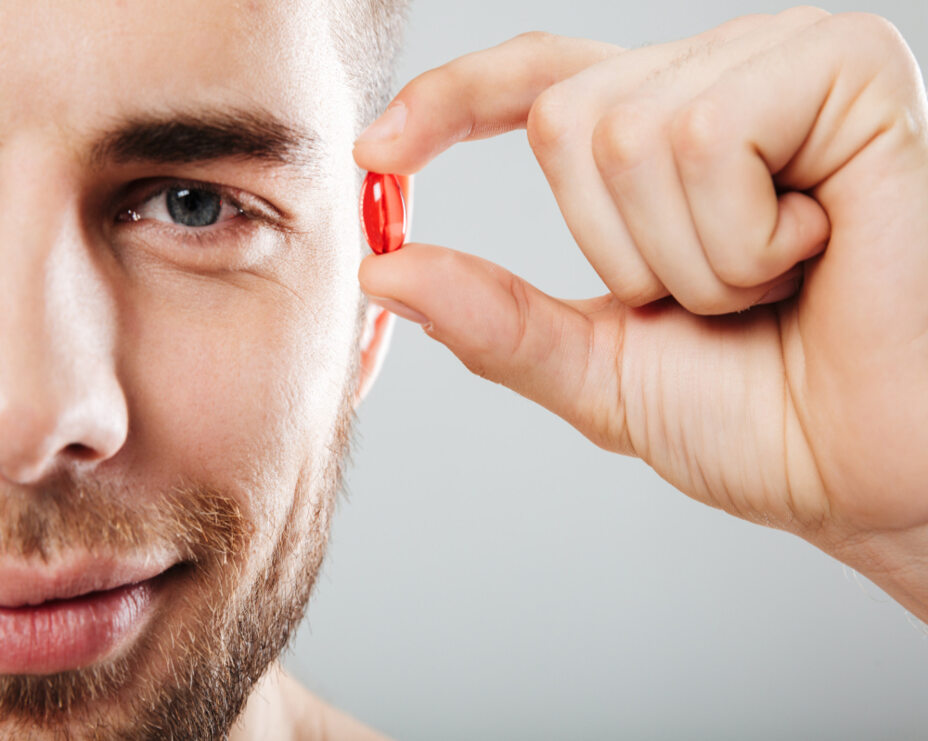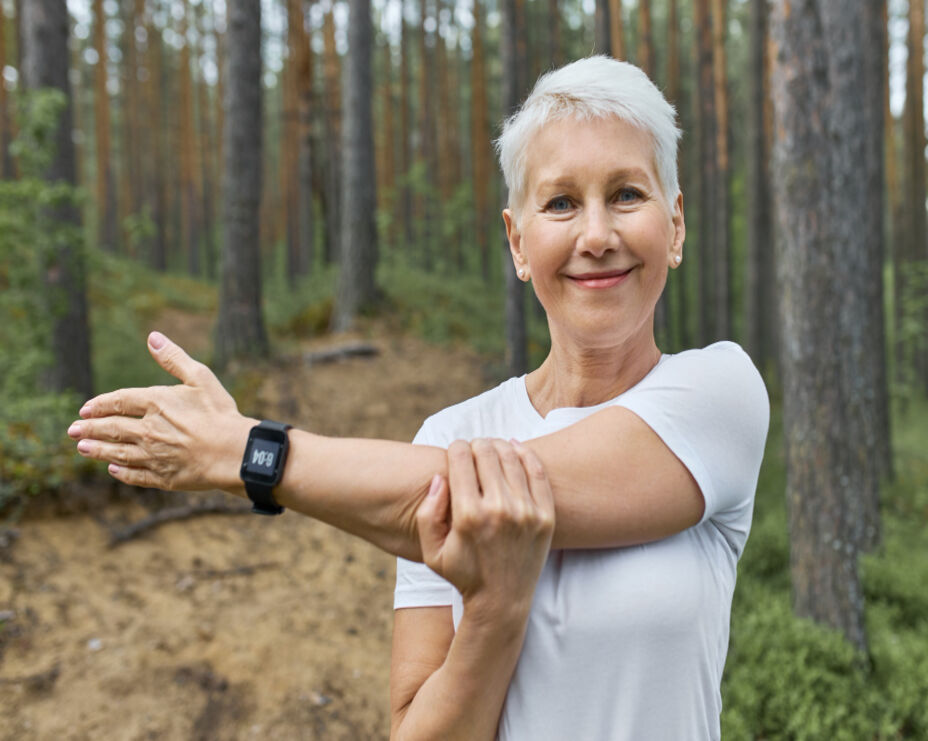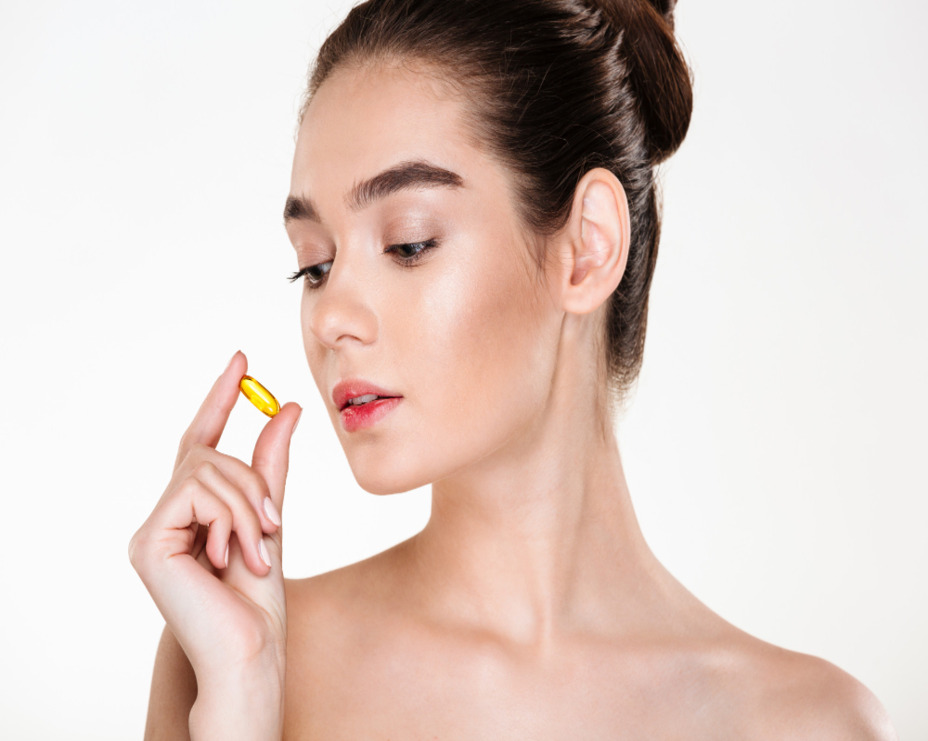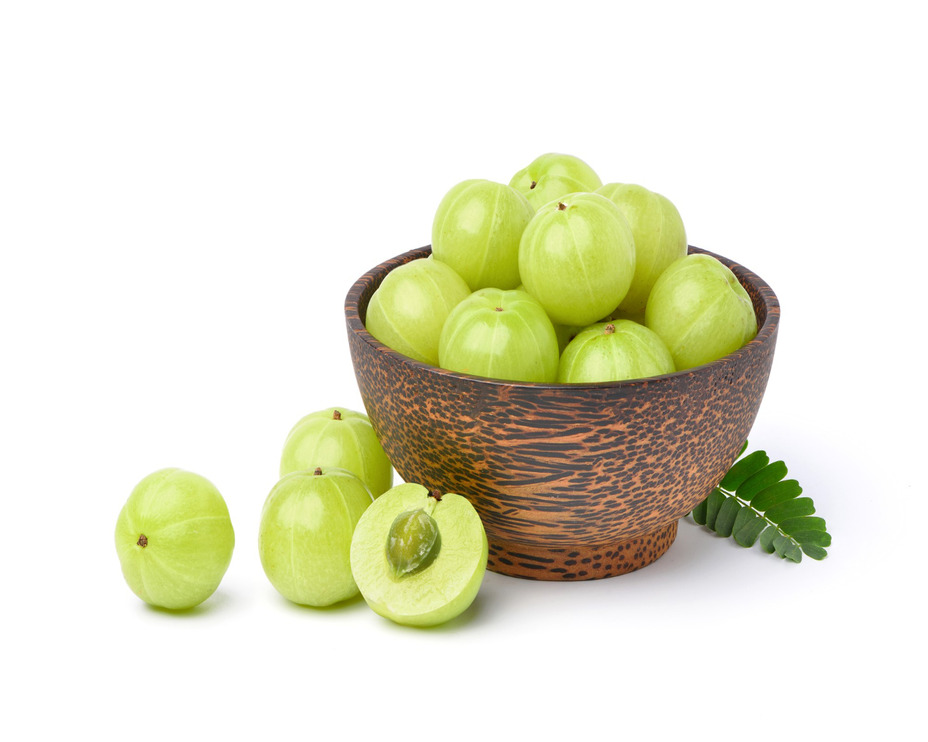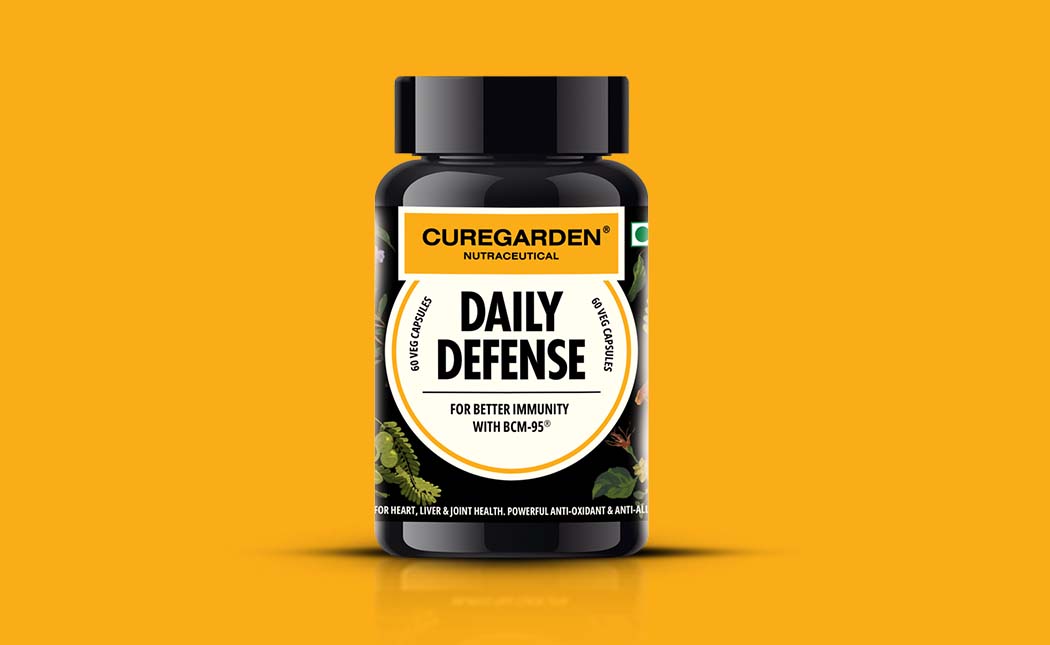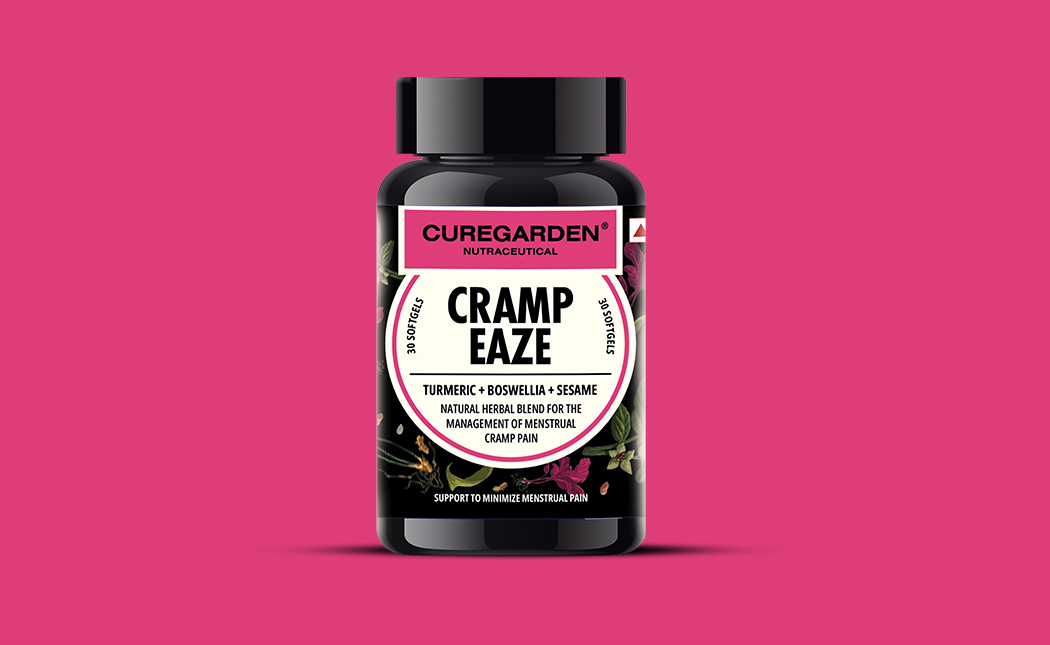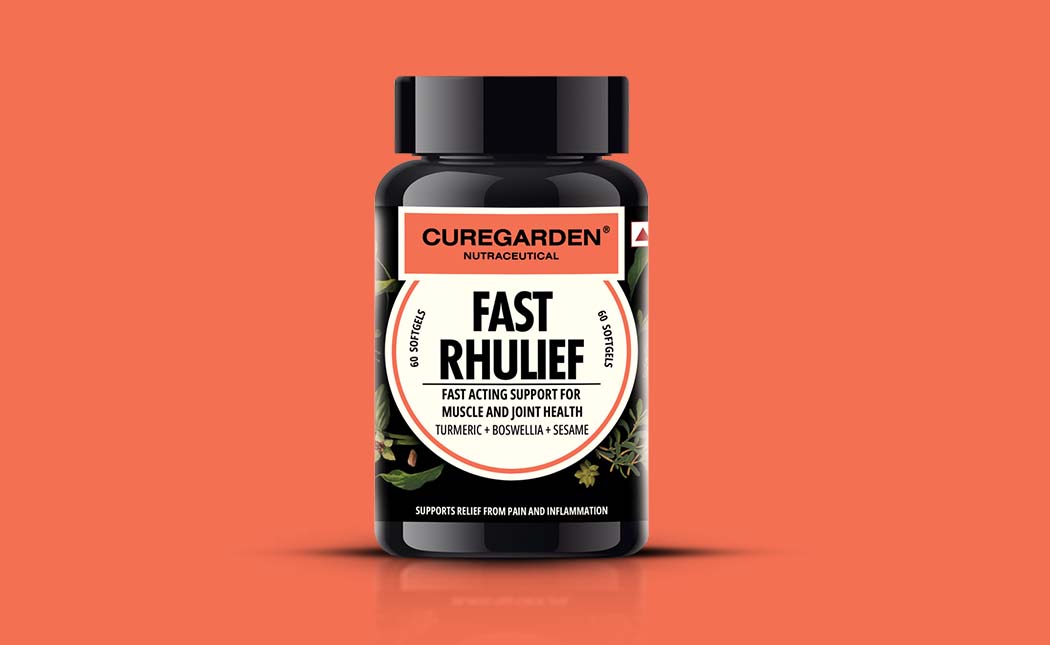Essential Takeaways
- Docosahexaenoic acid (DHA) is an omega 3 fatty acid, crucial for brain development, especially during pregnancy and early childhood
- DHA can reduce the chances of preterm labour by 42%.
- Know which dietary are rich sources of DHA.
- Curegarden’s DHA 40 high concentration of DHA fatty acids which helps for healthy pregnancy and foetal development.
Docosahexaenoic acid (DHA) is an omega 3 fatty acid crucial for brain development, especially during pregnancy and early childhood. It is further used to help with heart disease, high cholesterol, memory-boosting etc. DHA is part of every cell of our body and is a vital structural component of skin, eyes, and brain. It makes up almost 90% omega 3 fatty acids in our brain and 25% of our fat content. Since our bodies cannot produce the required amounts of DHA, we need to make up for it in our diets. DHA is found in fish, fish oil, and seafood. It also naturally occurs in some algae. While it can be synthesized from alpha-linolenic acid (ALA), a plant-based omega 3 fatty acid, the process is highly inefficient.
Why DHA During Pregnancy?

Did you know that DHA can reduce the chances of preterm labour by 42%? Research shows that women with low blood DHA levels are ten times more prone to preterm labor. During pregnancy, women need at least 200 milligrams daily of this powerful omega-3 fatty acid to support the development of the baby’s brain, eyes, and nervous system. However, research indicates that women are only getting 60 mg of DHA per day and only 1 in 14 pregnant women actually take DHA supplements.
Below find dietary sources of DHA to keep you and your baby healthy during and after pregnancy:-
Fish

Fish is an extremely healthy source of DHA. Low in calories and saturated fats and high in vitamin D, omega 3 fatty acids, and proteins, fish is a safe option for DHA as long as you consume fish with low mercury content. Fish like salmon, trout, and sardines are excellent sources. Steer clear from fish like swordfish, mackerel, shark etc as their mercury content is high.
Eggs

Organically sourced eggs are a great source of DHA. Chicken fed on flaxseed, which contain large amounts of ALA, produce omega 3 eggs. When chicken digest the flax seeds, the ALA is converted to DHA, and both fatty acids are transferred to the yolk. Make sure to eat the whole egg, as all the omega 3 fatty acids are located in the yolk.
Algal DHA Supplements

Vegan, vegetarian or just can't stand the taste and smell of fish in general? Algae is the way to go to meet your DHA requirements. It was once thought that fish had naturally occurring omega 3 fatty acids in their body, but research shows that it is because of their algae-rich diet. Over the last few years, DHA has been successfully extracted from algae making way for vegan and vegetarian omega-3 supplements. Moreover, algal oils and supplements are sustainable and environmentally friendly, as overfishing can affect the oceanic biodiversity. Also, it is safer as it does not contain mercurial and heavy metal content like seafood.
Fish Oil

Studies conducted on fish oil supplements show that they could provide neurodevelopment benefits in children, when pregnant or nursing women take them before and during pregnancy. The major factor in choosing your fish oil supplement is to choose one that provides at least 200 mg of DHA per serving, to be sure that both mom and baby are properly supported.
One such fish oil DHA supplement to consider is Curegarden’s DHA 40. DHA-40 fish oil contains a high concentration of DHA fatty acids which are depleted during pregnancy. Doctors recommend taking 400 mg of DHA per day during pregnancy. Each 500 mg capsule of DHA 40 contains carbohydrate: 5 mg, protein: 0.5 mg, fat : 494 mg, energy value (Kcal/ capsule) 4.5. The recommended dosage is two soft gels immediately after dinner.
Please note that eating fish or taking supplements does not guarantee your Prenatal DHA level will be in the desirable range - it must be measured. With your Prenatal DHA Test results, you will have the right information to personalize your DHA intake.

About the author
Essential Takeaways
- Docosahexaenoic acid (DHA) is an omega 3 fatty acid, crucial for brain development, especially during pregnancy and early childhood
- DHA can reduce the chances of preterm labour by 42%.
- Know which dietary are rich sources of DHA.
- Curegarden’s DHA 40 high concentration of DHA fatty acids which helps for healthy pregnancy and foetal development.
